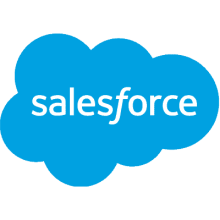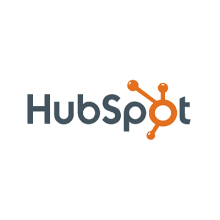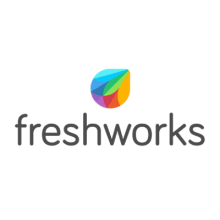Microsoft Dynamics 365 CRM is an integrated suite of customer relationship management applications designed to streamline business processes across sales, customer service, field service, and marketing. It offers scalable, modular solutions that can be customized to meet the needs of any organization, small or large, across dozens of industries. And it integrates seamlessly with other Microsoft products, including Office 365, Power BI, and Azure, so businesses can unify their operations, gain actionable insights, and foster stronger customer relationships. Today, over 40,000 companies use the platform, with 4.4 million users across the globe.
Beyond the basics (like lead/contact management and pipelining capabilities), Dynamics 365 distinguishes itself in the CRM market through its seamless integration with the broader Microsoft ecosystem — users can manage customer interactions directly within Outlook and Teams. This makes it easy to track emails, schedule follow-ups, and update records without constantly switching apps. For sales managers, Dynamics 365 offers tools to monitor team performance, manage quotas, review real-time forecasts, and provide feedback on customer interactions. And on top of that, the platform’s advanced AI capabilities, including Copilot, provide real-time, context-aware business insights and predictive analytics, so sales teams can prioritize high-value leads and forecast outcomes with remarkable accuracy.
Why this product is good
Positives for Microsoft Dynamics 365 Software
Product Details
What is Microsoft Dynamics 365?
At its core, Microsoft Dynamics 365 is two things: an ERP system (formerly Dynamics AX), and a CRM system (formerly Dynamics CRM). You can either use the two individually (e.g., just the CRM) or together. While the CRM component focuses on managing customer interactions, sales, and service processes, the ERP module is designed to oversee finance, supply chain, and operational processes.
Thanks to Dynamics’ unique integrated approach, different departments can tailor the platform to their specific needs, while the platform facilitates seamless data flow and uniform accessibility between these departments. This aligns your whole company around a comprehensive, 360-degree view of your customers and business operations.
Features of Microsoft Dynamics 365 include:
- Sales
- Customer insights
- Field service
- Customer service
- Finance and operations
- Marketing
- Retail and ecommerce sales
- Project service automation
- Talent management
Sales: Microsoft Dynamics 365 includes all the core features necessary for improving sales. This includes tracking, forecasting, and analyzing sales data. It also provides tools for creating new sales opportunities and pipelines, as well as tracking customer purchase history. With Dynamics 365, sales reps can also access performance metrics, value reports for lead scoring and prioritization, and AI tools for predicting customer behavior.
Customer Insights: This module merges customer information from Microsoft Dynamics 365, Office 365, and third-party data sources to help users discover useful insights. With the included Power BI for analytics and data visualization, advanced artificial intelligence tools can be implemented to recognize consumer patterns and trends that reveal predictive data. This data can be used to target customers with more accurate sales plans and strategies.
Field Service: Field service operations, including repair and maintenance activities, are managed more efficiently with the Dynamics 365 Field Service Module. This feature provides comprehensive job scheduling and dispatching capabilities, allowing managers to assign jobs using a drag-and-drop interface. It can also be integrated with other third-party software and IoT technologies to enable field service teams to troubleshoot issues in real time.
Customer Service: The Dynamics 365 Customer Service Module provides an integrated workflow that helps resolve customer inquiries quickly and effectively. Automated ticketing and support systems ensure timely response to customer service requests, while real-time access to customer data ensures accurate resolution of problems. Self-service portals provide customers with access to product information and other resources, allowing them to find solutions on their own. Multi-channel support systems make it easy for customers to contact customer service representatives through their preferred channels.
Finance and Operations: The Dynamics 365 Finance and Operations Module provides more than just financial management, reporting, and analytics tools. It also includes manufacturing, retail, and supply chain management capabilities. Manufacturers can track production processes and inventory levels instantaneously. Retailers can automate the ordering process for customers, suppliers, and distributors. Supply chain managers can monitor their entire operation from one centralized system.
Marketing: Dynamics 365 seamlessly connects Dynamics CRM and Adobe Marketing Cloud to furnish you with custom-made marketing tools that include campaign management functions. That way, bsuiensses can easily plan, execute, and monitor all of their marketing activities. It also provides tools for segmenting customers and targeting them with personalized messages.
Retail and Ecommerce Sales: With Dynamics 365’s retail and ecommerce solutions, companies can take advantage of omnichannel capabilities to improve customer experiences. This includes options like real-time inventory management and predictive analytics. Businesses can also use Dynamics 365 to manage customer loyalty programs, process payments quickly and securely, and optimize sales operations. With native support for Magento and Shopify, companies can also monitor performance, customer engagement, and sales productivity in their ecommerce stores.
Project Service Automation: Project planning, resource allocation, and task scheduling are simplified with Microsoft Dynamics 365. This system can track project milestones, resources, and costs across multiple locations or teams. It also enables users to quickly create and send estimates to customers to close deals faster.
Talent Management: Microsoft Dynamics 365’s cloud-based HR platform connects with LinkedIn Talent Solutions to provide organizations with a fully integrated talent management system. This includes recruitment, onboarding, and performance management tools that can help companies find, hire, and retain the best employees.
AI-powered insights: Microsoft Copilot is an AI assistant that helps sales teams prioritize leads and forecast different behavioral outcomes. On top of that, Dynamics 365 CRM uses advanced AI and machine learning capabilities to deliver insights into customer behavior and emerging trends. It analyzes all your sales, marketing, and customer data, then accurately forecasts customers’ needs. This makes it easier to run targeted marketing and sales campaigns and address customer issues before they even come up.
What are the advantages of using Microsoft Dynamics CRM?
Microsoft Dynamics CRM’s Benefits
Microsoft Dynamics CRM is a feature-rich tool that is useful for all business models, from manufacturers to ecommerce sellers to recruitment agencies.
Benefits of using Microsoft Dynamics CRM include:
- Integrated Tech Stack: The best thing about Microsoft Dynamics CRM is its integration capabilities. It can be integrated with most third-party systems and all of its other modules. Without having to switch between software providers, business tools, and user interfaces, Dynamics enables users to work seamlessly in all their applications.
- Backed by Microsoft: Since Dynamics is a Microsoft product, its infrastructure has been designed to handle massive amounts of data and customer interactions. It is also built with elements of its other products, including LinkedIn and Adobe, two industry leaders in their respective areas.
- Time and Cost Savings: Microsoft Dynamics CRM is designed to streamline processes, reduce operational costs, and increase customer service quality. Automating repetitive and error-prone tasks like order processing and customer support reduces labor costs while providing customers with a better user experience.
- Data Security: With its advanced security features, Dynamics ensures that all data stored in the system is secure, while also providing users with the ability to control access and enforce policies. Data is encrypted both in transit and at rest, which helps protect customer data from unauthorized access.
- Better Customer Service Experience: With Dynamics, users can easily manage customer data and create personalized customer experiences for their customers. This includes features like segmentation, automated marketing campaigns, and customer self-service tools.
- Built-In Analytics: Microsoft Dynamics CRM’s analytics engine is designed to give businesses real-time insights into their sales data. Using this information, they can track KPIs, monitor team members, investigate the customer experience, and improve their sales process.
- Scalability: Dynamics 365’s modular design allows businesses to add new features and customize their system as they grow. This helps organizations keep up with changing market conditions, customer needs, and industry trends without investing in additional software or hardware.
Prices
Microsoft Dynamics 365 Pricing
Dynamics 365 offers an innovative way to access and use business applications, equipped with additional features that can’t be found in Dynamics AX, NAV, GP, SL or CRM. Nevertheless, these products are still available for those who wish to continue using them. This is not a replacement but rather an alternative option for licensing and leveraging the advantages of valuable software tools.
Since its software suite is based on many different tools and features, its price varies wildly depending on the organization. For its sales module, the pricing is as follows:
- Professional ($65/user/month): Sales Professional is the first tier in Dynamics CRM, offering basic features like contact management, lead tracking, and customer segmentation. Its AI engine gives Sales Professional licensees lead and contact scoring capabilities, helping sales teams prioritize their efforts.
- Enterprise ($105/user/month): This tier includes all features of the Sales Professional license, plus more advanced features like predictive analytics and conversational intelligence.
- Premium: ($150/user/month): Like Sales Enterprise, Microsoft’s third tier of Dynamics CRM includes all of the features of lower tiers, including Viva Sales—a digital assistant for sales teams. Additionally, the Premium tier includes rebuilt customizable selling solutions for sales reps and managers. This includes solutions for territory management, product bundling, and pricing optimization.
- Microsoft Relationship Sales (variable pricing): Microsoft Relationship Sales is the Sales Enterprise subscription bundled with LinkedIn Sales Navigator, making it best for sales teams that incorporate LinkedIn into their outbound strategy.
What industries are best suited for this solution?
Microsoft Dynamics 365 CRM for Industries
As one of the most extensible and customizable CRM solutions on the market, Microsoft Dynamics 365 serves customers in several different industries. While most users are in the information technology and services sector, SaaS, manufacturing, retail, healthcare, financial services, and professional services sectors also comprise a significant portion of their customer base.
Let’s take a look at a few different industries and how they use MS Dynamics 365 CRM:
Information Technology and Services
Project Service Automation (PSA): Dynamics 365 CRM’s Project Service Automation module enables IT service providers to manage project-based services effectively. It facilitates resource scheduling by matching consultants’ skills with project requirements, ensuring optimal utilization. The module also allows for precise tracking of project milestones, budgets, and timelines, providing real-time visibility into project health. This comprehensive oversight aids in delivering projects on time and within budget, which, in turn, boosts client satisfaction and profitability.
Sales pipeline management: Dynamics 365 CRM makes it easy for IT companies to capture and qualify leads from multiple sources, including landing pages, online forms, advertisements, and events. By establishing specific guidelines for lead scoring, qualification, and readiness (e.g., demographics and behavior), they can determine which ones are ready for engagement. That way, nobody on the sales team overlooks potential deal opportunities.
Customer service and support: The platform centralizes customer interactions across multiple channels, including email, phone, and social media. This allows IT service teams to address customer concerns as quickly as possible, leading to higher satisfaction and loyalty rates. Additionally, features like ticket routing, escalation, and knowledge base integration streamline the support process, enabling quicker resolution of technical issues.
Manufacturing
Predictive Maintenance with Dynamics 365 Supply Chain Management and Azure IoT: By integrating Dynamics 365 Supply Chain Management with Azure IoT, manufacturers can implement predictive maintenance strategies. IoT sensors monitor equipment health in real time, transmitting data to the ERP system. Advanced analytics identify patterns indicating potential failures, allowing for proactive maintenance scheduling. The integrated approach within the 365 ecosystem minimizes unplanned downtime, extends equipment lifespan, and optimizes operational efficiency.
AI-driven demand forecasting with Dynamics 365 Finance: Dynamics 365 Finance leverages artificial intelligence to analyze historical sales data, market trends, and external factors, providing accurate demand forecasts. This insight enables manufacturers to optimize inventory levels, reduce carrying costs, and align production schedules with market demand, enhancing responsiveness and profitability.
Quality management with Dynamics 365 Business Central: Dynamics 365 Business Central offers integrated quality management features that allow manufacturers to set up quality inspection plans throughout different stages of production. By defining quality metrics and automating inspection processes, manufacturers can ensure product consistency and compliance with industry standards. Business Central integration facilitates immediate corrective actions, reducing defects and enhancing customer satisfaction.
Professional Services
Integrated Project Management: Dynamics 365 Project Operations enables professional services firms to manage projects from initiation to completion within a single platform. The integration facilitates seamless coordination between sales, resource management, and finance teams (along with clients) to ensure projects are delivered on time and within budget. The unified system provides real-time visibility into project metrics (e.g., timing, costs, and resources), which supports decision-making for both clients and internal stakeholders.
Client relationship management: Dynamics 365 Customer Engagement applications, such as Sales and Marketing, provide professional services firms with tools to nurture client relationships effectively. These applications offer AI-driven insights into client interactions, enabling personalized communication strategies and proactive engagement. The platform’s ability to unify client data across departments ensures a 360-degree view of each relationship, fostering trust and long-term partnerships.
Resource optimization: The Resource Scheduling Optimization feature within Dynamics 365 allows firms to allocate resources efficiently based on skills, availability, and project requirements. This ensures that the right personnel are assigned to the right tasks, maximizing productivity and reducing operational costs. The system’s adaptability to real-time changes enables swift responses to unforeseen challenges, maintaining project continuity.
Retail
Unified commerce platform: Dynamics 365 Commerce helps retailers deliver a seamless shopping experience across all channels — online, in-store, and mobile. This integration ensures consistent product information, pricing, and promotions, allowing customers to transition effortlessly between platforms. It also includes features the standard CRM does not, like point-of-sale (POS), inventory management, and retail-specific finance capabilities (e.g., commission tracking and store credit management).
AI-driven customer insights: By leveraging AI and machine learning, Dynamics 365 Commerce allows retailers to collect and analyze customer data, then create personalized shopping experiences with it. Dynamics 365 Customer Insights aggregates data from various sources, including CRM, ERP, social media, and marketing automation tools, to create comprehensive customer profiles. Retailers can segment customers based on preferences, buying patterns, and interactions to tailor marketing campaigns, promotions, and product recommendations to each customer.
Intelligent supply chain management: The Dynamics 365 Supply Chain Management module within Dynamics 365 CRM leverages AI-powered guidance for demand planning. This streamlines procurement, and improves visibility across the entire supply chain. That way, retailers can optimize inventory levels for different types of products (e.g., those that are “always in stock” vs. limited-time or seasonal ones), reduce stockouts, and respond to market changes ASAP.
CPQ Integrations
Which CPQ Solutions Integrate with Microsoft Dynamics 365?
Integrating Dynamics with CPQ (configure, price, quote) streamlines company sales processes and ensures accuracy. This integration allows businesses to use a single platform to manage customer data, create personalized experiences, and automate their sales processes.
Here are five CPQ providers that integrate with Microsoft Dynamics 365:
- Configure One CPQ
- DealHub CPQ
- Experlogix CPQ
- PROS CPQ
- Infor CPQ
- Tacton CPQ
- Cincom CPQ
Configure One CPQ
Configure One CPQ is a specialized solution made for manufacturing and other industries that need intricate configurations. With this application, sales reps can create individualized configs of complex items, compute pricing in real-time, integrate factory data into the system, supply customers with complete product quotes quickly, and expedite orders.
It is exactly this manufacturing capability that makes it such a great for the Dynamics 365 CRM/ERP system. By coupling Dynamics CPQ integration with Configure One, users are able to directly tie customer data from Dynamics into the Configure One quoting interface while conveniently populating all quote information. Product configurations, customer data flows, and dynamic pricing can all be pre-populated and quickly sent off for customer review.
Configure One is supported on both Dynamics 2016 on-premise (with ADFS or Azure authentication) and Dynamics 365 cloud (with Azure authentication).
DealHub CPQ
DealHub CPQ facilitates product configuration, quoting, and contract management for complex B2B pricing models like those in the SaaS, contract manufacturing, food and beverage, and logistics and supply chain industries. These include subscription pricing, usage-based pricing, multi-year deals, co-terming, and ramp deals, with additional support for upselling and cross-selling (through guided sales playbooks) and renewals. With DealHub, it’s easy to create personalized proposals, quotes, and contracts, reducing manual errors and accelerating the sales cycle.
The platform syncs with Dynamics 365 to give users access to customer data stored within their CRM and to build accurate and professional quotes directly within the Dynamics 365 environment. Its additional features, like guided selling and a digital sales room, fully integrate with Dynamics 365’s communication and collaboration tools, making it even easier to negotiate with customers and collaborate with deal desk members. And its headless API feature can connect with your website to facilitate online, rep-free transactions.
Experlogix CPQ
Experlogix CPQ is Microsoft Dynamics 365 certified, and it integrates deeply with various Dynamics 365 modules, including Sales, Finance, Supply Chain Management, Business Central, and Commerce. Integration is bi-directional, meaning updates in product configurations, pricing, or customer data are instantly reflected across both systems. You can also deploy the platform across your partner and reseller network, so they can also create quotes and proposals directly from Dynamics 365.
The solution offers guided selling features, providing sales representatives with real-time validation of configurations through intuitive prompts and color-coded indicators. Additionally, dynamic product visualizations using Experlogix CPQ’s Image Compositing technology allow users to see real-time representations of products as they configure them, which improves accuracy and makes for a more engaging buying experience.
For manufacturing scenarios, configured orders in Experlogix CPQ can automatically generate production orders, a bill of materials (BOM), and routings within Dynamics 365 Finance and Operations. CPQ automation in manufacturing processes streamlines the transition from sales to manufacturing, reducing manual interventions and potential errors.
PROS CPQ
PROS Smart CPQ revolutionizes the configure, price, quote process by utilizing cutting-edge artificial intelligence algorithms. This automation empowers sales teams to promptly respond to customer quotes, bids, and RFPs with personalized product and pricing offers that can be delivered in minutes. What’s more, its prescriptive recommendations ensure a streamlined journey for creating comprehensive proposals—all within minutes.
With a centralized, streamlined user experience that’s seamlessly integrated into Microsoft Dynamics 365 CRM, PROS not only helps sales leaders improve their efficiency but also optimizes deal velocity. By accelerating the configuration process and reducing manual errors, team members are able to tailor their offerings, increase customer loyalty and improve overall profitability.
Infor CPQ
Infor CPQ integration with Dynamics CRM automates order entry, production procedures, and retrieving valuable information from the ERP system. Plus, it can instantly search for available stock items to expedite the process. This combination of features dramatically improves communication companywide while reducing lead time and providing a more enjoyable customer experience overall.
For companies that utilize Dynamics 365’s ERP system (e.g., manufacturers and distributors), Infor CPQ provides a comprehensive view of their entire supply chain and sales process, from product selection to purchase order fulfillment. It pulls pricing, quantity, and resource availability information directly from the ERP system in real-time, and it launches its price configurator directly out of Dynamics 365. That way, data comes from a single source of truth.
Tacton CPQ
When you use Tacton CPQ software for Microsoft Dynamics 365, selling customized items becomes effortless. Tacton offers over 600 pre-built connectors and open REST APIs to facilitate seamless integration with Dynamics 365 for B2B manufacturers. Tacton’s out-of-the-box capabilities enable Microsoft Dynamics CRM users to express millions of product variants to configure complex products. Features like guided needs-based selling, AR technology, and Visual Configurations enable sales reps to configure products to match customer needs.
Utilizing Tacton CPQ’s API for Cost and Price Data allows you to pull up-to-date information from your price management systems so that sales reps can send customers accurate quotes with the best deal margins. With this efficient tool, you can minimize margin leakage caused by outdated pricing data. Tacton’s powerful integration links your enterprise systems with new product introductions and sales-to-order processes to help sales teams produce accurate sales orders in ERP and sync all of your selling data to Microsoft Dynamics 365 seamlessly.
Cincom CPQ
The integration between Cincom CPQ and Dynamics 365 is designed to streamline sales operations, making it easier for organizations to manage their quotes, proposals, and orders. The integration makes it easy to track customer information from the moment a quote request is received until the order is shipped or fulfilled. This helps ensure accuracy in pricing, as well as a customer experience that is timely and efficient.
Sales ops use Cincom CPQ to integrate their product catalog and configuration template libraries to generate accurate sales proposals easily. A simple drag-and-drop product configurator enables sales reps to create configured product quotes in minutes. Manufacturers find value in Cincom’s ability to show real-time inventory and materials levels availability and its management of special manufacturing instructions. The localization capability allows companies to create sales processes that consider local currencies and regulations.
Valuable Insight From Real Customers
Gartner Peer Insights
Out of 535 ratings, Microsoft Dynamics 365 has a rating of 4.3 out of 5 stars on Gartner Peer Insights. In their reviews, users say they’re getting value from the software’s sales automation capabilties. They also mention its ease of use and excellent customer support. However, some users mention that customization and integrations sometimes require an implementation expert and the UI could be improved.
The reviewers and customer demographics are as follows:
Reviewer’s Company Size
- <$50M: 15%
- $50M-$1B: 38%
- $1B-$10B: 24%
- $10B+: 18%
- Gov’t/PS/Ed: 6%
Reviewer’s Industry
- Manufacturing: 16%
- IT Services: 10%
- Consumer Goods: 8%
- Services (non-Government): 7%
- Other: 59%
Reviewer’s Deployment Region
- North America: 53%
- Europe, Middle East, and Africa: 25%
- Asia/Pacific: 18%
- Latin America: 4%
Gartner Peer Insights affirms that Microsoft Dynamics 365 helps users track their sales process and pipeline efficiently.

Andrew is a professional copywriter with expertise in creating content focused on business-to-business (B2B) software. He conducts research and produces articles that provide valuable insights and information to his readers.







